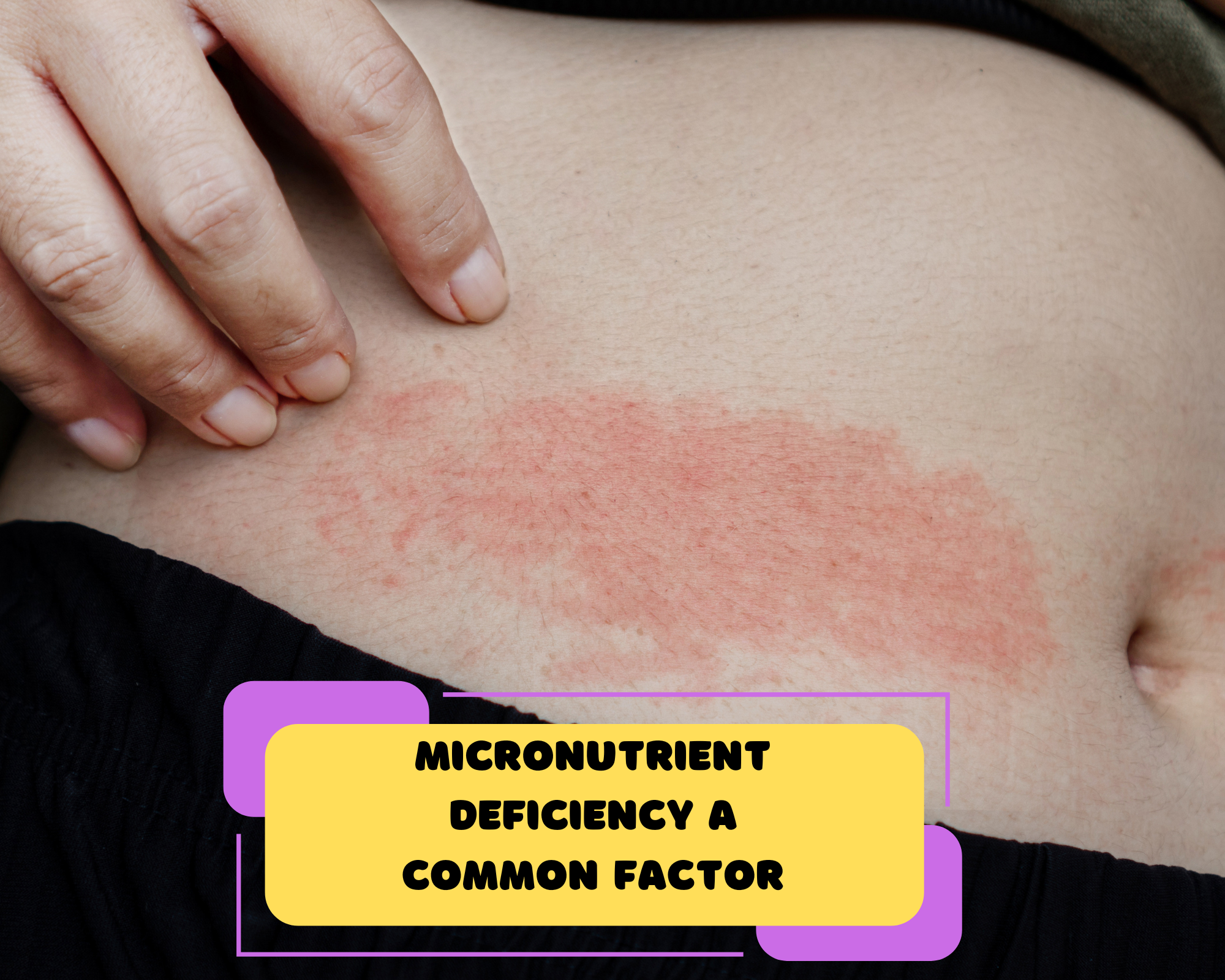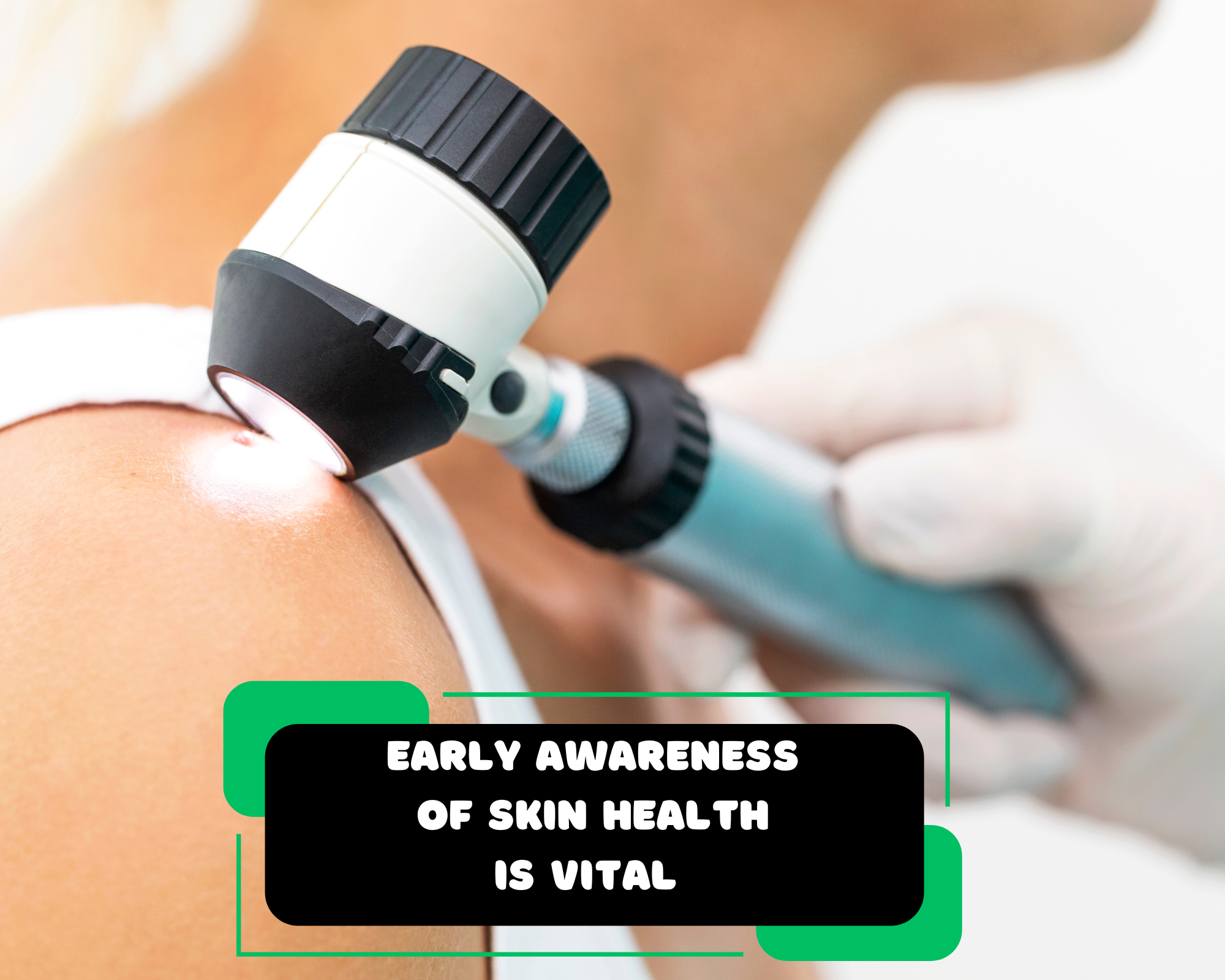How Coeliac Disease Impacts Skin Health with Dermatologist Dr. Ryan De Cruz
Dermatologist Dr Ryan De Cruz goes into detail about the link between skin health and coeliac disease
Hey Gluten Free Fam,
If you suffer from coeliac disease, you might have noticed complications with your skin. While there’s every chance the symptoms are unrelated, experts tell us the reaction of the skin can be attributed in some instances to the autoimmune disease.
To shed more light on the link between skin health and coeliac disease, Ben had Dr. Ryan De Cruz on Episode 198 of A Gluten Free Podcast.
The discussion covered a wide range of topics, from the gut-skin axis to the role of micronutrients, common skin symptoms associated with coeliac, challenges of identifying the condition and practical advice for sufferers.
The Gut-Skin Axis
From the outset, it’s important to ask a fundamental question: why is there a relationship between the health of the gut and the skin? Is there a cause and effect relationship here that many people are not aware of?
“When you have enteropathy (a disease of the small intestine) like coeliac disease, you simply don't absorb the nutrients that we need to function and that includes our skin's healthy function,” Dr. De Cruz outlines. “It includes the microbiome. What affects the normal bacteria that live in our gut, and when we have changes in the good bacteria and the bad bacteria of our gut, it can influence the skin.”
With his role as a specialist dermatologist, Dr. De Cruz is perfectly positioned to provide insights on the topic. However, while there’s a greater understanding about the link, we are yet to know with complete confidence how or why the skin behaves the way it does for someone suffering from coeliac.
“It's an area that we still need to learn so much about,” Ryan admits. “It's such a broad field, this concept of the gut-skin axis.”
The doctor explained on the episode that a condition like leaky gut syndrome can also directly impact the health of the skin. This is caused by the leak of proteins and pathogens that enter the bloodstream, damaging the immune system in the process.
Skin Health & Coeliac Tied to Micronutrient Deficiency
A lack of micronutrient absorption a common factor between skin ailments and coeliac disease
From the outset of the conversation, the dermatologist was eager to stress the importance of micronutrients when finding a connection between the two medical issues.
“The first thing I really want to (discuss) is micronutrients,” Dr. De Cruz outlined. “When we think about coeliac disease, we know automatically we don't absorb properly things like vitamin B12, vitamin D, and iron. These vitamins and minerals, (especially) iron, are so critical for skin health, but they're also critical for hair growth and the function of a lot of our skin in health.”
Thanks to his professional experience, a test result that indicates iron deficiency is now an opportunity to diagnose for coeliac disease.
“A lot of patients who come to me who are iron deficient, who have not been adequately investigated for coeliac disease, it's the first thing I'll either request myself or direct them back to the GP to say, look, these are the things that we need to do.”
Skin Symptoms Linked to Coeliac Disease
If you happen to be living with a challenging skin condition without considering the potential connection with coeliac, this is a chance to reassess. As the doctor remarks, there is one particular skin complaint that has a direct affiliation to the autoimmune disease, and it needs to be addressed early.
“I think one of the conditions that may be most closely linked with coeliac is a condition called Dermatitis Herpetiformis or DH,” the dermatologist said. “That's a very itchy skin rash that often presents with little bumps or little vesicles, so fluid-filled bubbles. It can occur on the arms, on the legs, on the buttocks, (or) in the scalp… I've definitely had patients who will report it. I don't think it's super common.”
Given the wide array of skin ailments that children and adults suffer from, it’s vitally important to book in with your local dermatologist to see what they can attribute the problem towards. As Dr. De Cruz says, these practitioners are trained on reviewing the small details, particularly when it comes to something like Dermatitis Herpetiformis.
“As a dermatologist, we're trained on morphology, which means what the rash looks like helps us come up with a list of potential diagnoses. DH is one of those that can look like a few different things, so you always need to have it at the back of your mind.”
The Challenge of Assessing Skin Symptoms
Anyone who has experience in this domain will know that achieving a diagnosis for coeliac disease can be far from a simple process. This complication is only amplified when talking about skin ailments and the link between the two, especially when every individual case is unique.
“You'll have some patients who have zero skin manifestations, and then you'll have others who have multiple. Why is it?” Dr. De Cruz ponders. “We still don't fully understand it… This is the thing about coeliac, I think it's quite an insidious disease. It doesn't present the same in everyone.”
“I think one of the conditions that may be most closely linked with coeliac is a condition called Dermatitis Herpetiformis or DH”
“Coeliac disease can be silent and you don't necessarily have to have symptoms, but you're just iron deficient. When someone's iron deficient, the common things I see is that they can be really itchy and have this dry, eczema prone skin. They often shed hair and have a lot of hair loss constantly.”
Tracking the Risk of Gluten Cross-Contamination via Skin Contact
One area that deserves closer attention is the potential for cross-contamination through skin contact. Although gluten-containing soaps and shampoos are unlikely to create complications for coeliacs, Dr. De Cruz could not rule it out entirely depending on the individual circumstances.
“The caveat is if the skin integrity isn't great,” the dermatologist told us. “If the skin is more porous, if the skin is damaged or inflamed for any number of reasons, hypothetically, it could be possible that you're going to get some penetration… You may get certain amino acids or certain kind of parts of the protein that then penetrate through the skin that can potentially be hazardous.”
To be safe, Dr. De Cruz offered a piece of advice when it comes to using personal hygiene products for those with coeliac disease.
“I think the principle should always be that skincare products that go on the skin should not contain any potential food proteins for this exact reason that they may be aggravating or potentiating skin allergy, or in this case, gut allergy.”
A subtle change in a new soap or shampoo brand could make a world of difference, particularly if the skin irritation continues to linger.
“Apply soap free products. Soap free cleanses are our recommendation,” the doctor advises. “Avoid products that contain fragrance because we know fragrances can often sensitise skin and make them more prone to skin allergy. I always like these really basic fragrance-free and highly moisturising products to be used after showering.”
Skin Health Advice from a Dermatologist
If you notice your skin condition change suddenly, this is a good time to see your dermatologist to receive answers
For Dr. De Cruz, early action is always the best remedy. Whether you believe there could be a cause-and-effect relationship between a rash and the autoimmune condition, it’s necessary to see a specialist, especially if a mark suddenly emerges.
“I would suggest that if someone's presenting with a new onset rash that they've never had before,” he mentions, “it's not like they were born with eczema or born with psoriasis; they're presented for the first time with an exquisitely itchy rash; the two things I always think about are scabies, which is an infection, a little mite, and DH, because they're the two things that I think cause the most severe itch.”
Thankfully there is a remedy for Dermatitis Herpetiformis that Dr. De Cruz uses for effective treatment in this instance.
“We rely very heavily on a medication called Dapsone, which is a really old school medication. It's an antibiotic that isn't really used commonly for many conditions anymore. It used to be many years ago, but it actually works really well for DH.”
Finding a Resolution & Advocating with Your GP
Sufferers of coeliac disease who live with DH symptoms have one very clear set of instructions to follow. From Dr. De Cruz’s point of view, there is no other form of compromise that needs to be considered.
“The (management of) the disease (and) to DH is a gluten free diet. It is 100% the thing (you) need,” he explains. “My goal (as a dermatologist) is to slowly take away the medication and then they go off and live their gluten free life. That generally is the cure.”
Personal awareness is everything when it comes to addressing health concerns. Throughout the discussion, it was clear the dermatologist is encouraging listeners to identify the early signs and take decisive action with local GPs and specialists.
“My biggest tip is just always be on the lookout for signs and symptoms that might manifest in the skin,” De Cruz told the podcast. “If you notice you're feeling excessively tired suddenly, if you notice that your hair is shedding more than normally, if you notice you are getting itchier, rather than letting these symptoms go and ignore them, advocate for yourself and say to your local doctor, this is unusual for me.”
Rather than allowing a doctor to dismiss the potential link or avoid testing, Dr. De Cruz argues that you need to be your own advocate. Continue to push until you have the results you are happy with.
“(Say to a specialist) ‘I don't feel super well. I'm not super happy. Can we recheck serology?’ In this day and age being an advocate for yourself (is necessary), we all know doctors aren't perfect. The healthcare system is difficult, it's strained, GPs are hugely under pressure to see as many patients as they can very quickly. This means things get missed.”
A big thanks to Dr. Ryan De Cruz for giving us all the insights and advice on skin health and the links with coeliac disease. You can listen to Episode 198 of A Gluten Free Podcast in its entirety.
As the founder of Southern Dermatology, Ryan discussed a number of topics including the role of dermatology in healthcare, his personal connection to the autoimmune disease, his recent holiday experience impacted by coeliac, issues around hair loss and much more.




